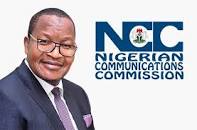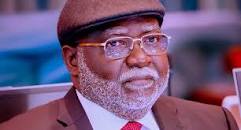
About a hundred judges, lawyers and top officials of the Nigerian Communications Commission (NCC) met in Lagos on Tuesday to discuss the digital world and the future of adjudication, how to deepen the digital knowledge of judges and judicial officers to adjudicate on conflicts.
The NCC called the three-day meeting held between November 28 and December 1, 2022, in Lagos.
The workshop’s theme: ‘The Digital World and the Future of Adjudication’, will also fertilise conversations on intellectual property, evolving dispute resolution mechanisms and legal liabilities in a digitalised world with pervasive internet connectivity.
The executive vice chairman of NCC, Prof Umar Danbatta, in a welcome address said the increased reliance on telecoms, as well as the growth experienced in the sector, has introduced some issues of legal connotation, which various experts will deliberate upon during the workshop. One such is the ownership of online content and materials.
He said, “It is envisaged that with the increase in the amount of online content, as well as the economic value attached, there will be a rise in conflicts as to ownership of online content and materials. Your Lordships must be well prepared for the imminent increase in litigation in this area.”
“Furthermore, he said, with an increase in the number of transactions and businesses taking place in the online space, it is also expedient for your Lordships to be exposed to the peculiarities of adjudicating conflicts in this era of digital presence and online identity.
“This forum aims to further build the capacity of our distinguished Judges with practical insights on these emerging issues in the field of telecommunications. Based on the feedback received from participants in previous editions and the current state of jurisprudence on telecom issues, the NCC has high hopes that the current workshop will further contribute to developing telecommunications law in Nigeria,” the EVC added.
Danbatta said the NCC efforts have led to the Broadband penetration in Nigeria increasing by 91.70 per cent in the last four years.
The country’s broadband penetration increased from 21.21 per cent in April 2017 to 40.66 per cent in April 2021. The Commission’s data show that in April 2021, 77,605,500 million Nigerians were connected to the Internet, up from 40,481,570 million in April 2017.
The current broadband penetration as of June 2022, he said, stands at 44.30% with more than eighty-four million internet subscriptions in the Country. These strides, according to Danbatta, are outcomes of the Commission’s regulatory management of the Industry as well as its focused implementation of policies and strategies of the Federal Government.
In a keynote address, the Chief Justice of Nigeria and Chairman of Governors of the National Judicial Institute, Justice Olukayode Arowoola, said the Nigerian judicial system had been challenged with delays in dispensing justice; however, with the introduction of ICT into the judicial space, many of the difficulties associated with the conventional methods are gradually being administered with.
Justice Kudirat Kekere-Ekun represented justice Ariwoola.
Ariwoola said, “the path to effective and efficient justice delivery in Nigeria lies in our ability to continuously improve our Justice sector with the use of ICT tools. To ensure that the Nigerian Judiciary becomes ICT compliant, we inaugurated the Judicial Information Technology Policy Committee (JITPO-COM) in January 2012 to chart a course for introducing Court Technology into the Nigerian Courts.
Ariwoola said, “In our desire to automate the Nigerian Judiciary, we have also developed and deployed the Nigerian Case Management System (NCMS) software. Indeed, the backbone of the court automation project is the Nigerian Case Management System (NCMS).
He said the NCMS aims to provide a seamlessly interfacing electronic platform for case management by all the courts in Nigeria. Some states’ High Courts have been completely automated since October 2020, using the NCMS to receive and assign cases.
He said the committee had retrofitted the courtrooms in the Supreme Court of Nigeria to serve as model Technology Leveraged Courtrooms (TLC). The NJC has since replicated this at selected Federal Courts.












